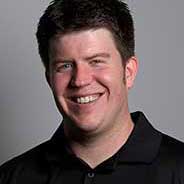I'm Trent Nix, an engineer and software professional interested in software project management and development.
This isn't my first professional website. I've created several over the years, only to abandon and delete each one once life got in the way or my interests wandered elsewhere.
I'm reminded of a scene in the movie Margin Call where one of the main characters laments his work. He's told, “You're one of the luckiest guys in the world, Sam! You could have been digging ditches all these years.” Sam's response sticks with me:
“That's true. And if I had, at least there'd be some holes in the ground to show for it.”
I'm not complaining, like Sam. I am one of the luckiest guys in the world. I love building software and leading software teams, and I've been able to do it for a living. I just wish I had a few more holes in the ground to show for it, that's all.
I've worked almost exclusively for smaller companies with big dreams, but because they are small companies, you're unlikely to know their names. A few of those companies no longer exist. A few have been modestly acquired and no longer resemble their former selves. A few others are still hustling, chasing startup dreams. I've done some great, challenging work over the years but without a marquee name, my resume doesn't, on its own, credential me as a can't-miss, must-hire prospect.
In addition to my resume, I've also got my LinkedIn profile because, well, you're supposed to in my line of work. Job applications even ask for it these days. But LinkedIn is mostly a homogenous ad-fest with a “social” feed that purposefully forgets I'd rather see “recent posts” than “top posts” (meaning whatever the algorithm dictates). LinkedIn wants you to believe the path to professional desirability is how much you post, share, and comment. It wants you to believe that if you give pithy, platitudinal advice and share mostly fictional anecdotes to appease the algorithm, you'll have a big audience that will provide big opportunities. I just don't see it that way.
Mostly, I'm frustrated that my resume and LinkedIn profile are most of what remains of my professional existence. I want to fix that, so I've decided to build a great professional website of my own. I encountered a couple of websites just this morning, like this and this, with envy, admiring the simplicity, depth, and quality of work these gentlemen have done and shared. I lament that I haven't been building and sharing so prolifically all these years.
This is the start of the type of site so many of the best professionals had before everyone was infatuated with the dopamine hits that come from a “like” button. This is the start of the type of site that was common before people worried about how to trick the algorithm.
It's time to dig a few holes.
